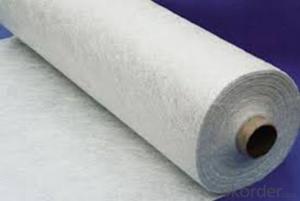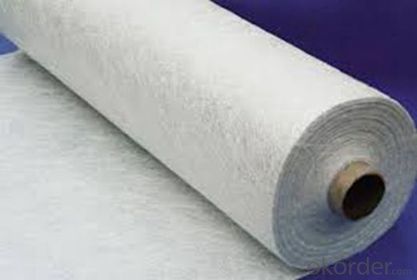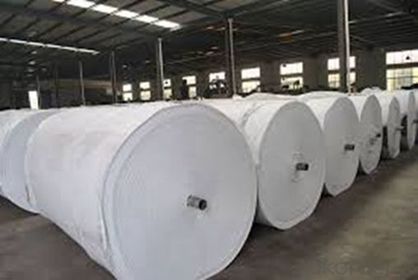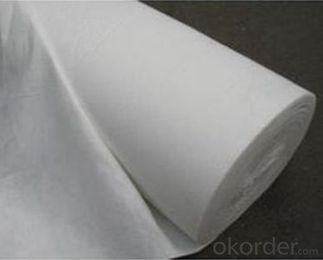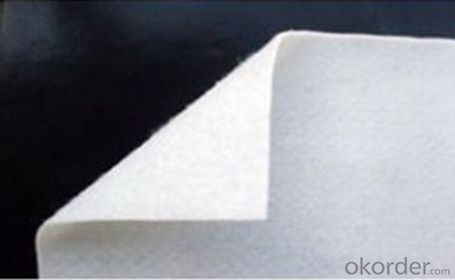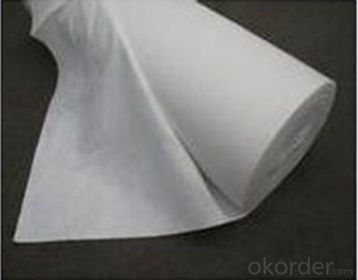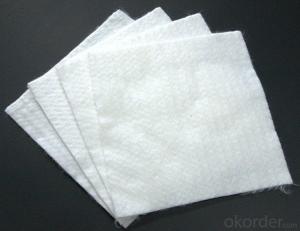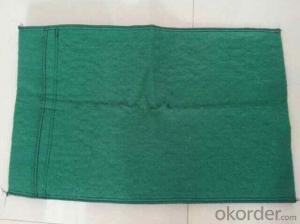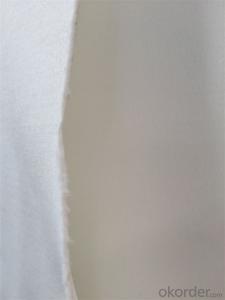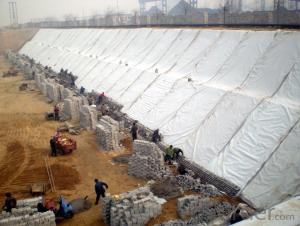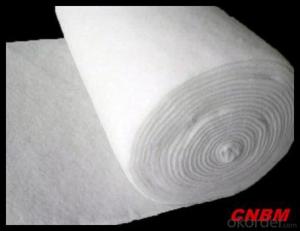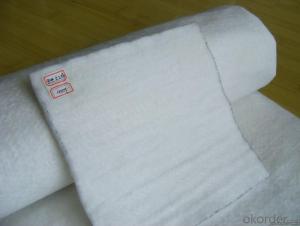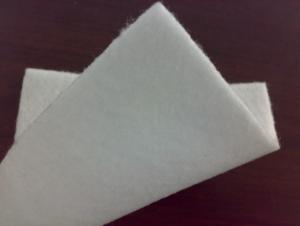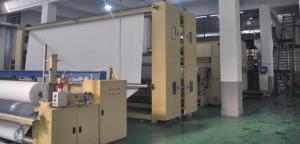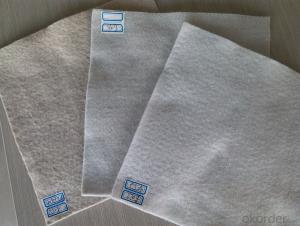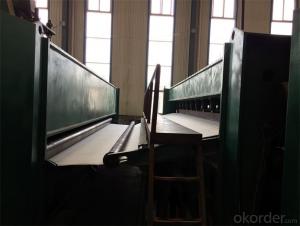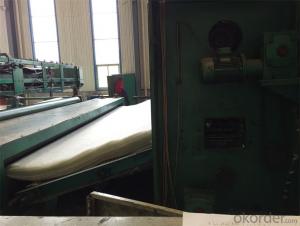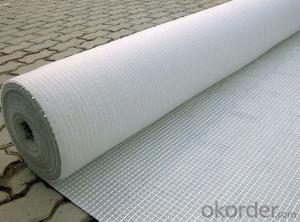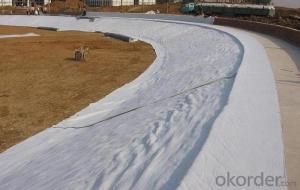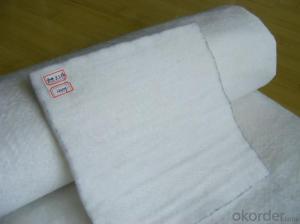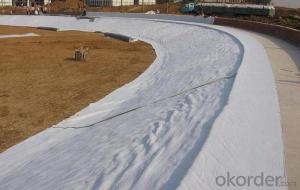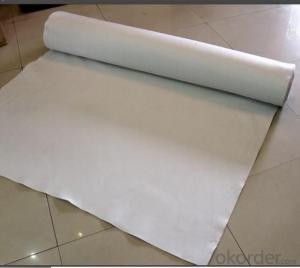Wicking Non Woven Geotextile Fabric Needle Punched Geotextile in Various Colours
- Loading Port:
- China main port
- Payment Terms:
- TT OR LC
- Min Order Qty:
- 2000 m²
- Supply Capability:
- 1000000 m²/month
OKorder Service Pledge
OKorder Financial Service
You Might Also Like
Specification
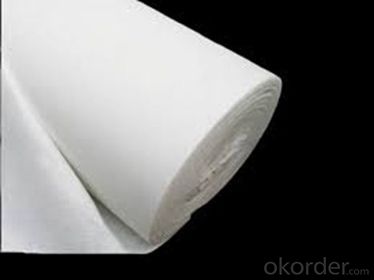
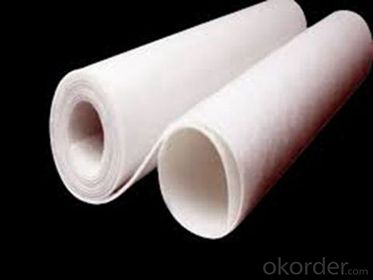
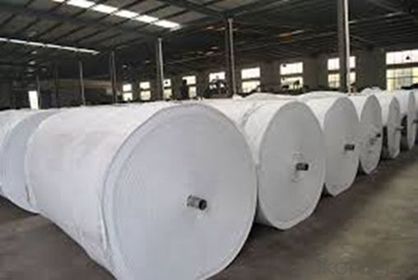
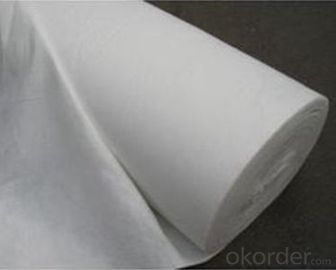
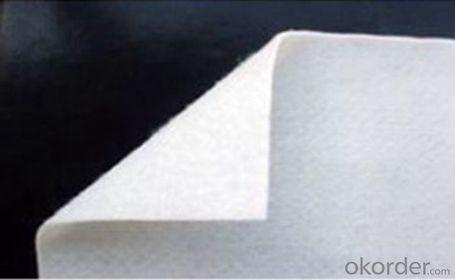
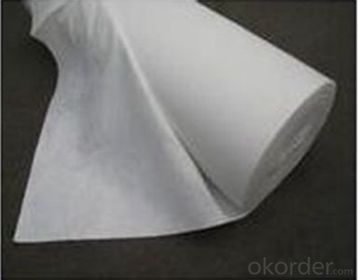
Type:Geotextiles
1) Weight / Mass: 100g/m2-800g/m2
2) Width: Within 6 m (1m-6m)
3) Length: 50m-100m/roll (as request)
4) Material: PP / PET
5) Color: Black , white , grey and other color
6) Certificate: CE/ISO9001 , ISO14001
7) Manufacturing method: nonwoven / woven
8) The Biggest geotextile manufacturer/factory in China for many years
Geotextile Type:Non-Woven Geotextiles
Application:Engineering field
Thickness:2.5mm
Packaging & Shipping
Packing: PLASTIC FILM INSIDE, AND WOVEN BAG OUTSIDE
Shipping: About 15 days after receipt the deposit
geotextile fabric
permeability,filtration,easy for construction
ISO and CE certificate
Good quality and competitive price
Our Service
Quality assurance
1.On a regular basis or as per your request,we entrust national testing agencies to conduct quality inspections
2. Strictly in accordance with the ISO9001-2008 international quality system standard,we monitor and manage the whole process throughout production,quality testing,and measurement to ensure product quality
3. For quality-related construction delay or substandard construction(except for damage or losses due to customer’s responsibility or irresistible natural disasters),we have refunding,replacement,and repair services.We will respond to customers’ feedbacks on quality issues within 24 hours.
After-sales service
1.In order to provide customers with comprehensive technical support,we will provide technical and other related information upon request in a timely manner.
2.In required,we will appoint specialized technicians to the construction site to give technical trainings to construction people,and offer technical guidance throughout the whole construction process.
3.For damage due to shipment and delivery,after we receive the complaint,we will check the issure through provided pictures and videos.If our responsibility is confirmed,we wil offer free replacement.
4.When the construction is completed,as your request,our technical staff may participate in the final acceptance.
FAQ:
Q: What kind of payments does jenor support?
A: T/T, L/C, Cash are accepted.
Q: Do you charge for the samples?
A: Accordeing to our company policy, the samples are free, we only charge the freight fee. And we will return the freight fee during the next order.
Q: Can you produce according to customers' design?
A: Sure, we are professional manufacturer, OEM and ODM are both welcome.
Q: Do you have other products?
A: Yes, please check the pictures:
- Q: Road with a geotextile cloth is a cloth or non-woven fabrics
- Geotextile is a non-woven category, geomembrane is divided into light film, and a cloth a film, two cloth a film, two cloth is a film in the middle of the membrane, both sides of the geotextile composite products. Huazhi geotextile material manufacturers
- Q: Can geotextiles be used in geosynthetic clay liner applications?
- Yes, geotextiles can be used in geosynthetic clay liner applications. Geotextiles are often used as a protective layer or separation barrier in combination with geosynthetic clay liners to enhance their performance and improve their effectiveness in various geotechnical applications.
- Q: Can geotextiles be used in erosion control in stormwater detention ponds?
- Yes, geotextiles can be used in erosion control in stormwater detention ponds. Geotextiles are commonly used as a protective layer to prevent soil erosion and stabilize slopes in various engineering applications, including stormwater management. By providing reinforcement and filtration, geotextiles help to control and reduce erosion caused by stormwater runoff in detention ponds, ensuring the long-term stability and functionality of these structures.
- Q: What are the key factors affecting the puncture resistance of geotextiles?
- The key factors affecting the puncture resistance of geotextiles include the type and thickness of the geotextile material, the tensile strength of the fibers used, the density of the fabric, and the presence of any protective coatings or additives. Additionally, the installation and construction methods, as well as the conditions and properties of the underlying soil or material, can also influence the puncture resistance of geotextiles.
- Q: Construction of composite geotextile
- Geotextile as a protective layer of geomembrane, so that the protection of impermeable layer from damage. In order to reduce the UV radiation, increase the anti-aging properties, it is best to use the laying method. Construction, the first use of smaller diameter sand or clay to find the base surface, and then laying geomembrane. Geomembrane should not be stretched too tight, buried at both ends of the soil part of the corrugated, and finally in the shop on the geomembrane with a fine sand or clay shop layer of 10cm or so excessive layer. Puzzle 20-30cm stone (or concrete prefabricated block) for the anti-Chong protective layer. Construction, should try to avoid the stones directly hit the geomembrane, the best side of the film side of the protective layer of the construction. Composite geomembrane and the surrounding structure should be connected with expansion bolts and steel plate pressure bar anchorage, the connection site to brush the emulsion asphalt (2mm thick) bonding, to prevent the occurrence of leakage.
- Q: What are the different geotextile testing parameters?
- There are several different geotextile testing parameters that are used to evaluate the performance and quality of geotextiles. Some of the common parameters include tensile strength, puncture resistance, tear strength, permeability, apparent opening size, and UV resistance. These tests help determine the suitability of geotextiles for specific applications and ensure their durability and effectiveness in various geotechnical and civil engineering projects.
- Q: Can geotextiles be used in river training works?
- Yes, geotextiles can be used in river training works. Geotextiles are often used to stabilize riverbanks, prevent erosion, and control sediment movement in rivers. They can be used to reinforce embankments, create slope stability, and protect riverbeds. Geotextiles are an effective and environmentally friendly solution for managing and controlling the flow of water in river training works.
- Q: How do geotextiles improve the performance of tunnels?
- Geotextiles improve the performance of tunnels by providing reinforcement, drainage, and filtration. They help stabilize the soil and prevent erosion, leading to increased structural stability and longevity of the tunnel. Additionally, geotextiles can facilitate efficient water drainage, reducing the risk of water accumulation and potential damage to the tunnel. Lastly, they act as a filter, preventing fine particles from clogging drainage systems and ensuring the smooth functioning of the tunnel infrastructure.
- Q: What are the factors to consider when selecting geotextiles?
- When selecting geotextiles, there are several factors that should be considered. These include the intended application or project, the required strength and durability, the desired permeability and filtration properties, the site conditions and environmental factors, as well as the cost and availability of the geotextiles. It is important to choose a geotextile that is suitable for the specific requirements of the project and can effectively perform its intended function.
- Q: How are geotextiles used in sports field construction?
- Geotextiles are used in sports field construction to enhance the stability, drainage, and longevity of the playing surface. They are commonly installed beneath the turf to provide separation between the subbase and the playing surface, preventing the migration of fines and ensuring proper filtration of water. Geotextiles also help to distribute loads evenly, reduce soil compaction, and prevent the formation of ruts and depressions on the field. Overall, geotextiles play a crucial role in creating high-performance and durable sports fields.
Send your message to us
Wicking Non Woven Geotextile Fabric Needle Punched Geotextile in Various Colours
- Loading Port:
- China main port
- Payment Terms:
- TT OR LC
- Min Order Qty:
- 2000 m²
- Supply Capability:
- 1000000 m²/month
OKorder Service Pledge
OKorder Financial Service
Similar products
Hot products
Hot Searches
Related keywords
